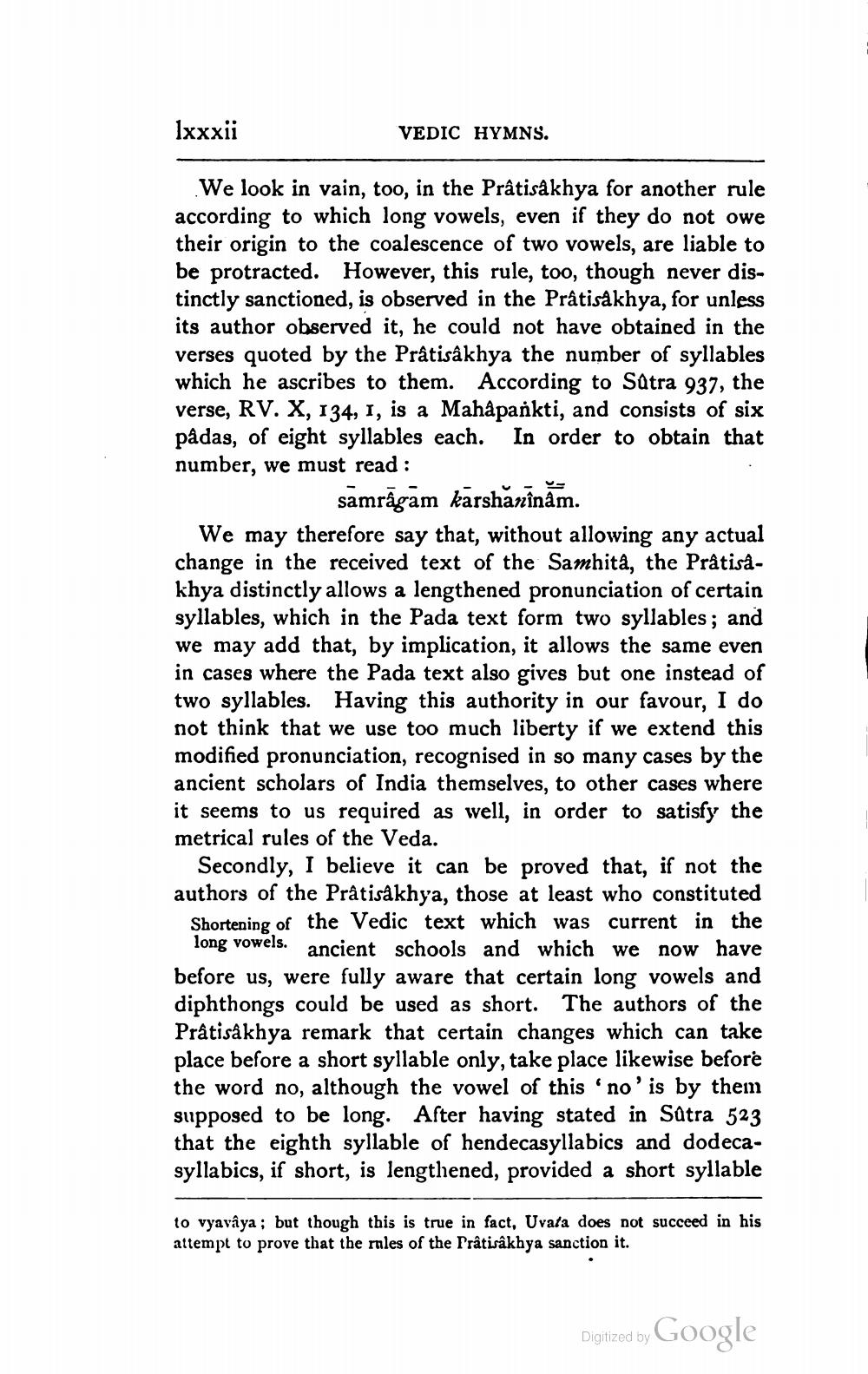________________
1xxxii
VEDIC HYMNS.
We look in vain, too, in the Prâtisakhya for another rule according to which long vowels, even if they do not owe their origin to the coalescence of two vowels, are liable to be protracted. However, this rule, too, though never distinctly sanctioned, is observed in the Prátisakhya, for unless its author observed it, he could not have obtained in the verses quoted by the Prâtisakhya the number of syllables which he ascribes to them. According to Satra 937, the verse, RV. X, 134, 1, is a Mahapankti, and consists of six padas, of eight syllables each. In order to obtain that number, we must read :
samrāgam karshanīnām. We may therefore say that, without allowing any actual change in the received text of the Samhità, the Prâtisakhya distinctly allows a lengthened pronunciation of certain syllables, which in the Pada text form two syllables; and we may add that, by implication, it allows the same even in cases where the Pada text also gives but one instead of two syllables. Having this authority in our favour, I do not think that we use too much liberty if we extend this modified pronunciation, recognised in so many cases by the ancient scholars of India themselves, to other cases where it seems to us required as well, in order to satisfy the metrical rules of the Veda.
Secondly, I believe it can be proved that, if not the authors of the Prâtisakhya, those at least who constituted
Shortening of the Vedic text which was current in the
long vowels. ancient schools and which we now have before us, were fully aware that certain long vowels and diphthongs could be used as short. The authors of the Prátisåkhya remark that certain changes which can take place before a short syllable only, take place likewise before the word no, although the vowel of this 'no' is by them supposed to be long. After having stated in Sätra 523 that the eighth syllable of hendecasyllabics and dodecasyllabics, if short, is lengthened, provided a short syllable
to vyavâya ; but though this is true in fact, Uvala does not succeed in his attempt to prove that the rules of the Prâtisakhya sanction it.
Digitized by Google




